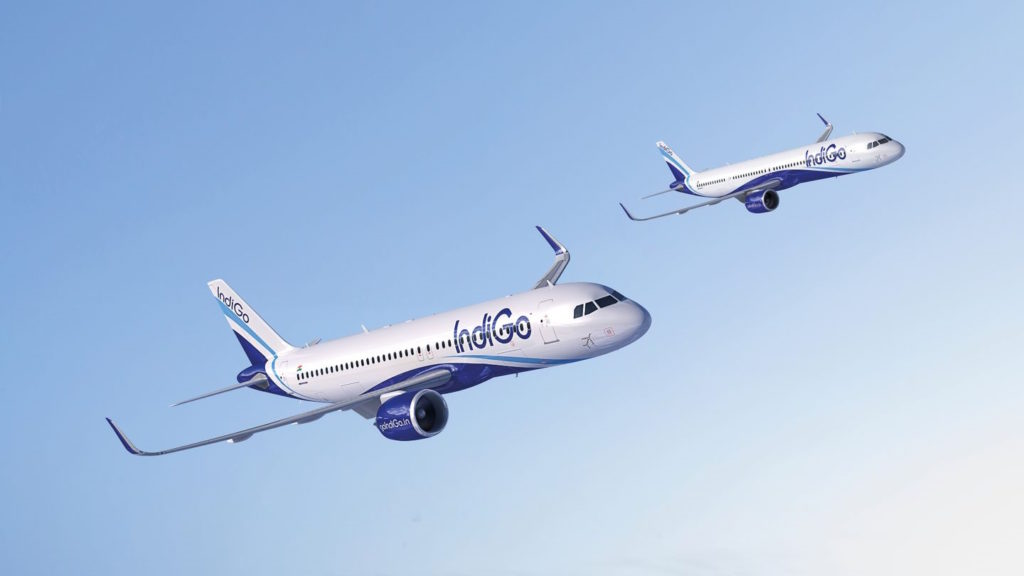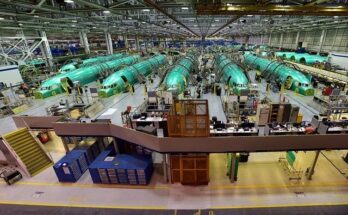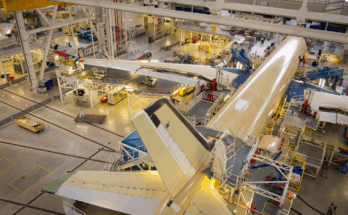IndiGo and Air India place largest jet orders in commercial aviation history


The 2023 Paris Air Show could be regarded as the official post-COVID comeback for the global aviation industry. Ordering activity was significantly stronger in Paris than in Farnborough in July of last year, and Boeing and Airbus together racked up around 1,100 firm aircraft orders and an additional 90 commitments – with Airbus winning the Paris orders crown with approximately 830 firm orders. A total of 2,453 exhibitors from 49 countries participated in the event, which is now open to the general public. When the show ends, it is expected that a total of 316,470 people, including 139,840 trade visitors and 176,630 visitors from the general public, will have attended. Also, 2,700 accredited journalists from 87 countries are covering the event.
With potentially record-breaking orders on the drawing board around the world and all forecasts calling for stronger-than-ever aircraft demand and air traffic figures in this decade and beyond, it was no surprise that some of these orders were firmed up in Paris.
The largest single order was placed by IndiGo, a major low-cost carrier and India’s largest airline by market share. IndiGo placed a firm order for 500 A320 family aircraft, setting a new record for the largest aircraft order by numbers in the history of commercial aviation. Since its inception, IndiGo has ordered a total of 1,330 Airbus A320 family jets, cementing its position as the largest A320 customer. The New Delhi-based carrier today operates a fleet of around 300 aircraft and is among the fastest growing airlines in the world. The 500 aircraft are expected to be delivered in the 2030-2035 timeframe. Prior to the IndiGo order, the largest-ever order was placed by American Airlines in 2011, when it ordered a total of 460 Airbus and Boeing jets.
In what would have been the largest single commercial aircraft order ever placed (by numbers) if IndiGo had not placed an even larger order, Air India firmed up its planned order for 470 Airbus and Boeing aircraft announced back in February. Air India booked a total of 250 firm Airbus aircraft, including 140 A320neo and 70 A321neo narrowbody jets as well as 34 A350-1000 and six A350-900 widebody jets. The Boeing component includes 190 737 MAXs, 20 787 Dreamliners, and 10 777X jets (220 firm orders), with options for another 50 737 MAXs and 20 787 Dreamliners.
Among the smaller orders announced in Paris, Avolon placed an order for 40 737 MAX 8s (and placed a commitment for 20 A330-900s), Saudi low-cost airline flynas ordered 30 A320neos, and Mexican low-cost airline Volaris ordered 25 A321neos.
Despite the massive orders placed by the two Indian carriers, major orders are still on the drawing board around the world. We know that Ryanair is getting ready to place an order for up to 300 Boeing 737 MAX jets. The deal includes 150 firm orders and 150 options for the 737-10 model, the largest in the 737 MAX family. Surprisingly, a firm agreement was not announced in Paris. Furthermore, Turkish Airlines is planning a huge order for 600 jets, including 400 narrowbody and 200 widebody aircraft. The order would be split between Airbus and Boeing. If placed as one single order, IndiGo’s record order for 500 jets would be surpassed. Turkish Airlines plans to double its fleet to 814 jets and 171 million passengers carried as part of a major strategic push over the next decade.
With the last order signed in Paris, Airbus and Boeing can now add nearly 1,100 firm orders to company backlogs. At the end of May, Airbus reported a backlog of 7,139 jets, of which 6,503, or 91 percent, were A220 and A320ceo/neo family narrowbodies. This was 586 aircraft below the company’s all-time backlog record of 7,725 aircraft set in January 2020. Adding the Paris order haul, mainly consisting of the IndiGo and Air India orders, minus approximately 60 June deliveries, Airbus could soon announce a new all-time backlog record of some 7,900 jets.
By the end of last month, Boeing’s backlog (total unfilled orders before ASC 606 adjustment) was 5,351 aircraft, of which 4,215, or 79 percent, were 737 NG/MAX narrowbody jets. Boeing’s all-time backlog high of 5,964 aircraft was set in August 2018. Despite a successful Paris Air Show, Boeing will not surpass its backlog record just yet. But a new record is certainly in the cards over the next few years. The number of Airbus aircraft to be built and delivered represents 8.3 years of shipments at the 2019 production level (the pre-pandemic level), or 10.8 years based on the 2022 total. In comparison, Boeing’s backlog would last 6.6 years at the 2018 level (the most recent “normal” year for Boeing), or 11.1 years based on 2022 deliveries.
Also, as a side note, Airbus CEO Guillaume Faury announced that the company is exploring a stretched version of the A220. The A220 stretch would also come with a choice of engines. Currently, the A220-100/300 models are powered by the Pratt & Whitney PW1500G turbofan.
With the COVID-19 pandemic winding down, everything is pointing toward one outcome: higher-than-ever commercial aircraft backlogs driven by record-breaking world air traffic figures in this decade and beyond. There is only one caveat. The supply chain is struggling to keep up with demand, but eventually that, too, will be overcome.
References:
- https://www.reuters.com/business/aerospace-defense/new-orders-supply-chain-progress-paris-airshow-grapples-with-pandemic-aftermath-2023-06-22/
- https://www.airbus.com/en/newsroom/press-releases/2023-06-indias-indigo-places-record-order-for-500-a320-family-aircraft
- https://www.goindigo.in/content/dam/goindigo/investor-relations/press-releases/2023/230619_IndiGo-orders-500-Airbus-A320-Family-aircraft.pdf
- https://www.goindigo.in/about-us.html
- https://leehamnews.com/2023/06/19/day-one-at-paris-airbus-lands-record-indigo-deal-for-500-a320s/
- https://boeing.mediaroom.com/2023-06-20-Air-India-Finalizes-Order-for-Up-to-290-Boeing-Single-Aisle-and-Widebody-Jets
- https://www.airbus.com/en/newsroom/press-releases/2023-06-air-india-firms-up-order-for-250-airbus-aircraft-selects-new
- https://www.airindia.com/content/dam/air-india/pdfs/media-centre/Press%20Release_Air%20India%20Firms%20Up%20Orders%20for%20470%20Airbus%20and%20Boeing%20Aircraft,%20Signs%20Purchase%20Agreements%20at%20Paris%20Air%20Show_20062023.pdf
- https://www.reuters.com/business/aerospace-defense/worlds-largest-commercial-jet-purchase-orders-by-number-aircraft-2023-06-20/
- https://www.bloomberg.com/news/articles/2023-06-20/airbus-seeks-more-deals-after-record-indigo-order-paris-update
- https://www.flightglobal.com/orders-and-deliveries/paris-air-show-order-tracker-indigo-deal-and-air-india-confirmation-lead-show-business/153806.article
- https://simpleflying.com/largest-aircraft-orders/
- https://simpleflying.com/air-india-biggest-aircraft-order-ever/
- https://boeing.mediaroom.com/2023-05-09-Ryanair-Places-Its-Biggest-Boeing-Order-for-up-to-300-737-MAX-Jets
- https://www.bloomberg.com/news/articles/2023-06-01/turkish-airlines-mega-plane-order-taking-more-time-to-wrap-up
- https://www.reuters.com/business/aerospace-defense/turkish-airlines-set-order-600-aircraft-june-chairman-2023-05-11/
- https://timesofindia.indiatimes.com/business/india-business/470-planes-80-billion-largest-ever-deal-air-india-to-revamp-fleet-with-huge-boeing-airbus-orders/articleshow/97925918.cms
- https://www.ajot.com/news/ibas-predictions-for-paris-air-show-2023
- https://www.siae.fr/en/presentation.htm
Kasper Oestergaard is an expert in aerospace & defense market intelligence, fuel efficiency in civil aviation, defense spending and defense programs. Mr. Oestergaard has a Master's Degree in Finance and International Business from the Aarhus School of Business - Aarhus University in Denmark. He has written four aerospace & defense market intelligence books as well as numerous articles and white papers about European aerospace & defense topics.



